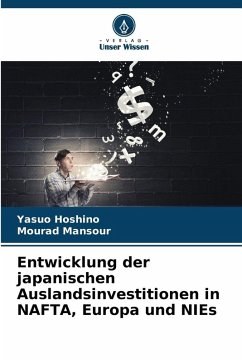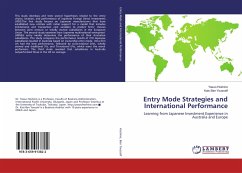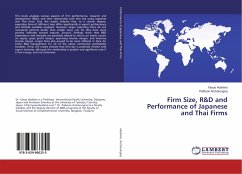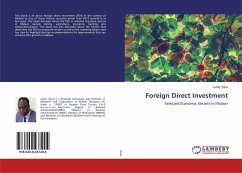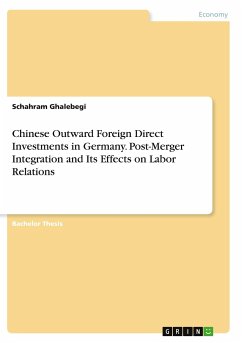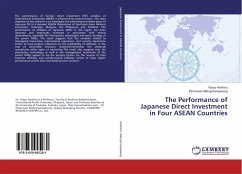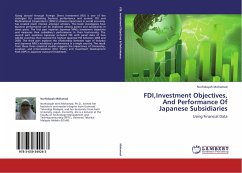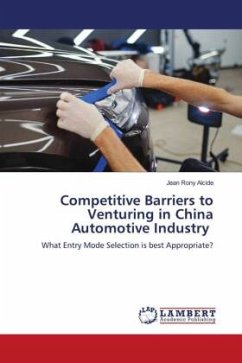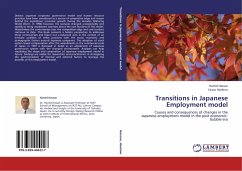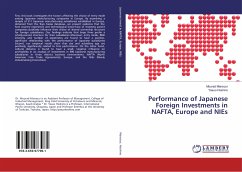
Performance of Japanese Foreign Investments in NAFTA, Europe and NIEs
Versandkostenfrei!
Versandfertig in 6-10 Tagen
28,99 €
inkl. MwSt.

PAYBACK Punkte
14 °P sammeln!
First, this book investigates the factors affecting the choice of entry mode among Japanese manufacturing companies in Europe. By examining a sample of 311 Japanese manufacturing subsidiaries established in Europe, obtained from the Toyo Keizai database, we present evidence that the host country experience and technological know-how of investing parent companies positively influence their choice of shared ownership structure for foreign subsidiaries. Our findings indicate that large firms prefer a wholly-owned structure for their subsidiaries Moreover, entry mode, R&D intensity, and number of ...
First, this book investigates the factors affecting the choice of entry mode among Japanese manufacturing companies in Europe. By examining a sample of 311 Japanese manufacturing subsidiaries established in Europe, obtained from the Toyo Keizai database, we present evidence that the host country experience and technological know-how of investing parent companies positively influence their choice of shared ownership structure for foreign subsidiaries. Our findings indicate that large firms prefer a wholly-owned structure for their subsidiaries Moreover, entry mode, R&D intensity, and number of expatriates are found to have a positive, significant relationship with the performance of Japanese subsidiaries Second, our empirical results show that size and subsidiary age are positively, significantly related to firm performance. On the other hand, cultural distance is found to have a small, negative influence on profitability in an analysis of investments in 890 Japanese manufacturingsubsidiaries in three distinct business environments: NAFTA (North American Free Trade Agreements), Europe, and the NIEs (Newly Industrializing Economies).



